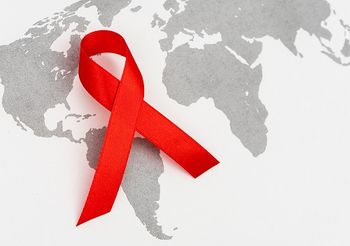
Research suggests misperceptions about the risk of HIV infection should be corrected at the time of testing, with PrEP initiated same-day if appropriate.

Research suggests misperceptions about the risk of HIV infection should be corrected at the time of testing, with PrEP initiated same-day if appropriate.

Although antiretroviral therapy has led to significantly longer life expectancies among individuals with HIV, this, in turn, has contributed to the likelihood that these individuals will develop age-related comorbidities at earlier ages.

International interdisciplinary collaboration will bring us that much closer to a cure for HIV.

In case you missed them, we’ve compiled a list of the latest recalls posted this week.

The US Food and Drug Administration (FDA) has weighed in on the strains to be included in the 2018-2019 influenza vaccine.

In case you missed them, we’ve compiled the top five infectious disease articles from this past week.

An outbreak of Lassa fever in Nigeria that began at the start of the year has now soared to become the country’s biggest outbreak of the virus to date. Nigerian and global health officials are now working together to stop the outbreak.

The first global estimate of tuberculosis (TB) rates among young people find that about 1.8 million individuals in this age group develop the disease each year.

The new test can differentiate between Lyme disease and 7 other tick-borne diseases.

These deadly infections are often treated with combination therapy, but a new study finds no significant difference in outcomes when using a 2-drug regimen versus a single-drug regimen.

Contagion® will be providing exclusive coverage on the conference, and so, keep your eyes peeled for session coverage and interviews with some of the key presenters.

CARB-X, the international partnership between governmental and charitable groups in the United States and the United Kingdom, has announced new funding for the development of new antibiotics to fight drug-resistant bacteria.

The results of the trial revealed that the tablet reduced the rate of infection with influenza by 48%.

The institute has made the development of the vaccine “one of its highest priorities.”

A new bill introduced by a group of senators aims to boost universal flu vaccine research by $1 billion over the next 5 years, as health officials continue to investigate the cause of the flu shot’s low efficacy.

High prescribing continues despite the fact that heavy use of these agents can facilitate the development of multidrug-resistant bacteria and tendon, muscle, joint, and central nervous system damage.

SMUCLA implements high-touch wipe down intervention to address the need for environmental disinfection of cancer patient care areas.

NIAID Vaccine Research Center scientists alters broadly neutralizing HIV antibody to make it last longer in the blood.

Infectious disease physicians often have to fight to garner the attention of policymakers.

Methicillin-resistant Staphylococcus aureus (MRSA) bacteremia is associated with high mortality.

The investigators concluded that 2 separate immune pathways are key players in the way in which the body deals with chlamydia: one pathway clears the bacteria, while another fuels inflammation and tissue damage.

A panel of experts in a recent symposium discuss how dental professionals can play an integral role in increasing HPV vaccination rates and decreasing HPV-related cancer.

These studies lay clear the clinical and economic toll of cytomegalovirus in the allo-HCT setting.

In case you missed them, we've compiled recalls that you should know about from this past week.

Stay up-to-date on the latest infectious disease news by checking out our top 5 articles of the week.

The Michigan Department of Health and Human Services announced they are conducting an investigation of tuberculosis exposure at 3 health care facilities.

Investigators develop a statistical model predicting which bacterial strains will engraft after FMT.

FDA recommends that health care providers practice caution before prescribing clarithromycin to patients with heart disease due to potentially fatal long-term risks.

The authors of a new study sought to change the constant problem of hand hygiene adherence at their institution: here's how they did it.

PrEP does not have to be taken daily to be effective, but consistency and a strong support system are key.